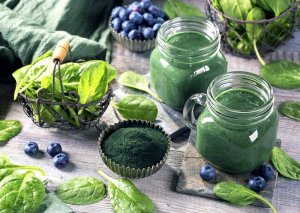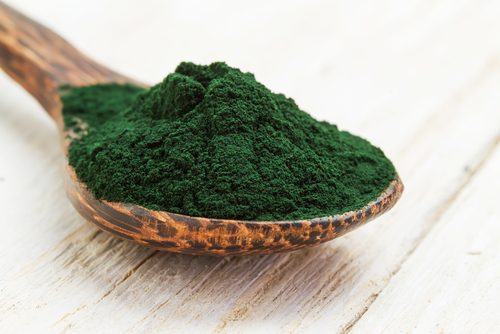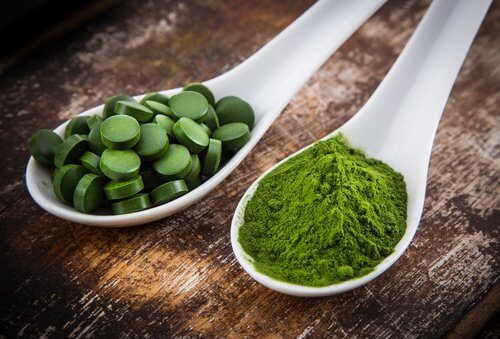5 Benefits of Spirulina for Your Brain


Written and verified by the psychologist Gema Sánchez Cuevas
Spirulina is a cyanobacteria that gets its name from its spiral shape. It’s so green because of the chlorophyll inside it. It also has a lot of amazing nutrients for our bodies, like amino acids, proteins, vitamins, and minerals.
It’s an extremely healthy nutritional supplement with not one single man-made chemical in it. It’s also very easy to digest, and gives you a feeling of fullness for a rather long time.
Millions of people all over the world use spirulina as a dietary supplement, following the recommendations of the United Nations (UN) and the World Health Organization (WHO). These organizations say it’s good to use this supplement as a way to deal with malnutrition in humanitarian crises because it can help get people’s bodies back on track in a stable way.
People have known about spirulina’s health benefits for ages and ages. But actual studies about its benefits started with a publication in 1940, by the French phycologist Pierre Dangeard.
He noticed that the people who lived near Lake Chad, in Africa, were strong, well-developed, and never got sick, even though they lived somewhere without many nutritious food sources.
Later studies showed that these people consistently ate a kind of sun-dried green cake. Once they analyzed the nutrients, that’s when they discovered spirulina. It’s a superfood containing a ton of vitamins, minerals, amino acids, and proteins.

It improves your memory
Eating spirulina can help improve your memory capacity. This is because it protects your cognitive systems and stimulates your brain and nervous system. It’s also great for your general well-being. Both of those things can help keep your mood stable and lower your stress.
It relaxes your brain
One of the main ingredients in spirulina is tryptophan, which synthesizes other proteins and balances out your nervous system. Tryptophan is an amino acid that’s also the key to your body’s production of serotonin, the happiness hormone. Because it’s necessary for serotonin, it helps regulate mood, stress, and appetite.
You also need tryptophan to produce melatonin in your body. Melatonin is the main hormone for regulating your sleep cycles, so it’s an important part of getting good sleep.
But our bodies can’t produce tryptophan on their own. That’s why it’s so important to get it through your diet. For all these reasons, high levels of tryptophan are a great way to prevent issues like insomnia, depression, and anxiety.
It’s a neuroprotector for your brain
Spirulina has recently been getting attention for being a neuroprotector. What that means is that it might be a good way to prevent and treat any disease related to the cognitive system: Alzheimer’s, Parkinson’s, schizophrenia, complications of severe concussions…
There are a lot of harmful heavy metals and toxins that build up in the brain over our lives. The latest scientific studies have shown that these toxins can lead to cognitive diseases.
Thanks to its high levels of chlorophyll, spirulina is a great food for getting rid of heavy metals and toxins. It can help improve your brain function and it protects your neurons from damage.
Right now people are doing experiments about how spirulina might be able to reduce symptoms of Alzheimer’s and Parkinson’s, but we’re not sure what their conclusions are yet.

It reduces the risk of embolism
Embolisms and brain ischemia both mean that there’s not enough blood flow to your brain. What that leads to is less oxygen, which can then cause a stroke. Even if the blood flow to your brain is only interrupted for 10 seconds it can cause huge problems. It can make you lose consciousness, along with other serious consequences.
The Indian Institute of Technology Delhi found that small doses of spirulina can help protect the nervous systems of rats who are exposed to large amounts of free radicals.
The rats who didn’t get the spirulina didn’t have the same levels of protection. This lab test shows just how beneficial spirulina can be for preventing embolisms.
It gives you energy
Spirulina is a great supplement for athletes because it helps your muscles heal more quickly after exercise. It’s also an extremely powerful antioxidant, which helps even more.
Eating some every day can make you feel less tired. That’s why it’s good for both athletic people and people who don’t exercise much but are trying to start. It can help everyone push themselves and make their training much more efficient and productive.
This text is provided for informational purposes only and does not replace consultation with a professional. If in doubt, consult your specialist.








